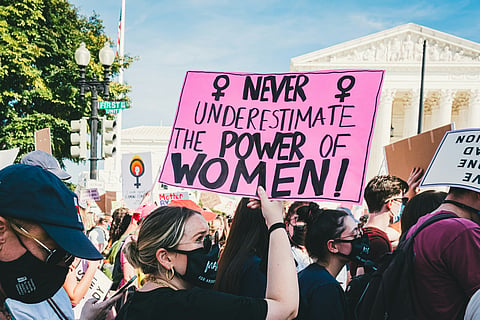

The United Kingdom’s Supreme Court has issued a unanimous ruling that the legal definition of a “woman” under the Equality Act 2010 refers to individuals born biologically female, excluding transgender women, even those with gender recognition certificates (GRCs).
This decision, stemming from a challenge brought by For Women Scotland (FWS), has significant implications for the application of equality laws and the ongoing debate over transgender rights in the UK.
The case originated from a 2018 Scottish law mandating 50% female representation on public boards, which included transgender women with GRCs in its definition of “woman.”
FWS argued that this interpretation overstepped parliamentary authority and undermined protections for biological women.
The group contended that equating certificated gender with biological sex could erode single-sex spaces and services, such as changing rooms, hospitals, and sports facilities.
After a lower court rejected the challenge in 2022, FWS appealed to the Supreme Court, which granted permission to hear the case last year.
The ruling addresses the interpretation of “sex” and “woman” in the Equality Act, a cornerstone of UK anti-discrimination law.
Lord Hodge, delivering the judgment, stated, “The terms woman and sex in the Equality Act 2010 refer to a biological woman and biological sex.”
He emphasized that interpreting “sex” as certificated gender would create inconsistencies, particularly in provisions related to pregnancy, maternity, and single-sex services.
Hodge clarified that the ruling “does not remove protection from trans people,” who remain safeguarded against discrimination based on gender reassignment.
The court rejected the Scottish government’s position that transgender women with GRCs should be legally recognized as women under the Equality Act, noting that such an interpretation would create “heterogeneous groupings” and confuse organizations managing single-sex spaces.
The ruling has sparked varied responses.
FWS and supporters, including gender-critical activist Maya Forstater, hailed it as a victory for clarity.
The UK government welcomed the decision, affirming its commitment to protecting single-sex spaces based on biological sex.
Conversely, trans rights advocates expressed concern.
Ellie Gomersall of the Scottish Green Party called the ruling a setback, urging legislative changes to ensure full equality for transgender individuals. Scottish Trans urged calm, warning against overstated interpretations of the ruling’s impact.
The Supreme Court’s ruling establishes that the legal definition of “woman” under the Equality Act 2010 is rooted in biological sex, providing clarity for policies governing single-sex spaces and services, such as sports, healthcare, and public facilities.
Policymakers will need to navigate the implementation of this ruling while addressing the broader legal and social considerations.